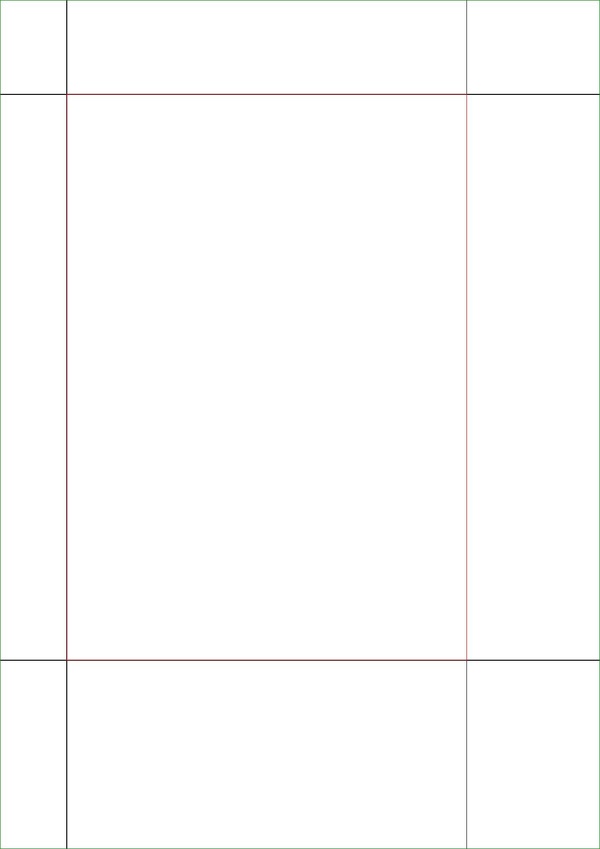User:Riviera/Crop
CROP Ratios On Paper
These notes are concerned with a bash script I wrote recently, applied to ConTeXt and then translated to Python. The output of the script is a list of dimensions corresponding to a particular ratio. I would like it to extend it to a pdf-output. Interaction with the command line interface could be like this:
crop --ratio=2:3 --paper-size=A4 portrait.pdf
First two empty lists are declared
x = []
y = []
Subsequently, the variables of paper_height and paper_width are given.
paper_height = 297
paper_width = 210
The code could be improved by allowing the user to provide an argument. For example --papersize=A4, whereupon the dimensions of the A-series paper size could be retrieved from somewhere for use in the calculations. I’ll think about implementing this feature at a later point. Next up are two variables, step_x and step_y.
step_x = 3
step_y = 2
Let’s fill the list with some values
for n in range(step_x, paper_height, step_x):
x += [n]
for n in range(step_y, paper_width, step_y):
y += [n]
The lists, though of different lengths, are now full of numbers. These amount to two sequences of numbers within a particular range. When aligned, the relationship between the numbers in the lists are always in proportion to the ratio given by the user. Here is how the lists can be aligned:
i = 0
for n in range(0, len(x)):
print(y[i], x[i])
i += 1
2 3 4 6 6 9 8 12 10 15 12 18 14 21 16 24 18 27 20 30 22 33 24 36 26 39 28 42 30 45 32 48 34 51 36 54 38 57 40 60 42 63 44 66 46 69 48 72 50 75 52 78 54 81 56 84 58 87 60 90 62 93 64 96 66 99 68 102 70 105 72 108 74 111 76 114 78 117 80 120 82 123 84 126 86 129 88 132 90 135 92 138 94 141 96 144 98 147 100 150 102 153 104 156 106 159 108 162 110 165 112 168 114 171 116 174 118 177 120 180 122 183 124 186 126 189 128 192 130 195 132 198 134 201 136 204 138 207 140 210 142 213 144 216 146 219 148 222 150 225 152 228 154 231 156 234 158 237 160 240 162 243 164 246 166 249 168 252 170 255 172 258 174 261 176 264 178 267 180 270 182 273 184 276 186 279 188 282 190 285 192 288 194 291 196 294
Sample output might look like this in PDF format. The typesetting area in the image below is based on Van de Graaf's canon; the left margin is 1/9th of the page width and the right margin is 2/9ths. Likewise, the header is 1/9th of the page height and the footer is 2/9ths. The lists of dimensions could be useful for creating custom page sizes that fit on standard page sizes. The code would benefit from the implementation of an integer which divides the page into sections to determine typesetting space. In general, this could be useful for creating template page layouts for ConTeXt documents.

